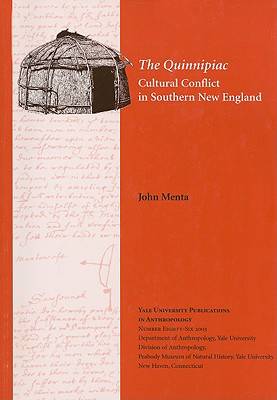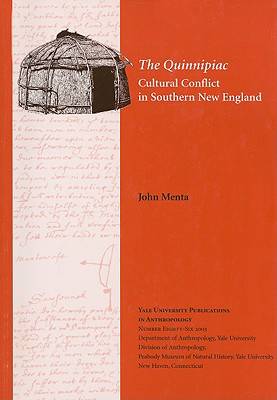
- Afhalen na 1 uur in een winkel met voorraad
- Gratis thuislevering in België vanaf € 30
- Ruim aanbod met 7 miljoen producten
- Afhalen na 1 uur in een winkel met voorraad
- Gratis thuislevering in België vanaf € 30
- Ruim aanbod met 7 miljoen producten
Omschrijving
The Quinnipiac, the indigenous Algonquian who lived in south-central Connecticut, had developed a culture that allowed them to prosper by the time the first Europeans visited their shores. By 1638 the first permanent English settlement, New Haven, existed within their territory. During those first years after contact, the Quinnipiac proved useful to the newcomers because of their familiarity with the local environment, but after this brief period of accommodation cultural tensions developed between the two groups. Although land disputes were the most frequent source of conflict, no aspect of life was too insignificant to lead to problems. The tensions grew steadily more exacerbated until the surviving Quinnipiac, in about 1750, began to leave their former domain. Their Diaspora is a complicated and unhappy tale. Yet even at the end of the 20th century, descendants of the tribe endured among the Native American people of Wisconsin. The story of the Quinnipiac and their contacts over the last several centuries with Euro-American culture is taken from primary and secondary sources, including an analysis of the Algonquian's treaties. John Menta tells here, for the first time, the complete narrative of this little-studied native people.
Specificaties
Betrokkenen
- Auteur(s):
- Uitgeverij:
Inhoud
- Aantal bladzijden:
- 264
- Taal:
- Engels
- Reeks:
- Reeksnummer:
- nr. 86
Eigenschappen
- Productcode (EAN):
- 9780913516225
- Verschijningsdatum:
- 27/07/2010
- Uitvoering:
- Paperback
- Formaat:
- Trade paperback (VS)
- Afmetingen:
- 173 mm x 244 mm
- Gewicht:
- 589 g

Alleen bij Standaard Boekhandel
Beoordelingen
We publiceren alleen reviews die voldoen aan de voorwaarden voor reviews. Bekijk onze voorwaarden voor reviews.











